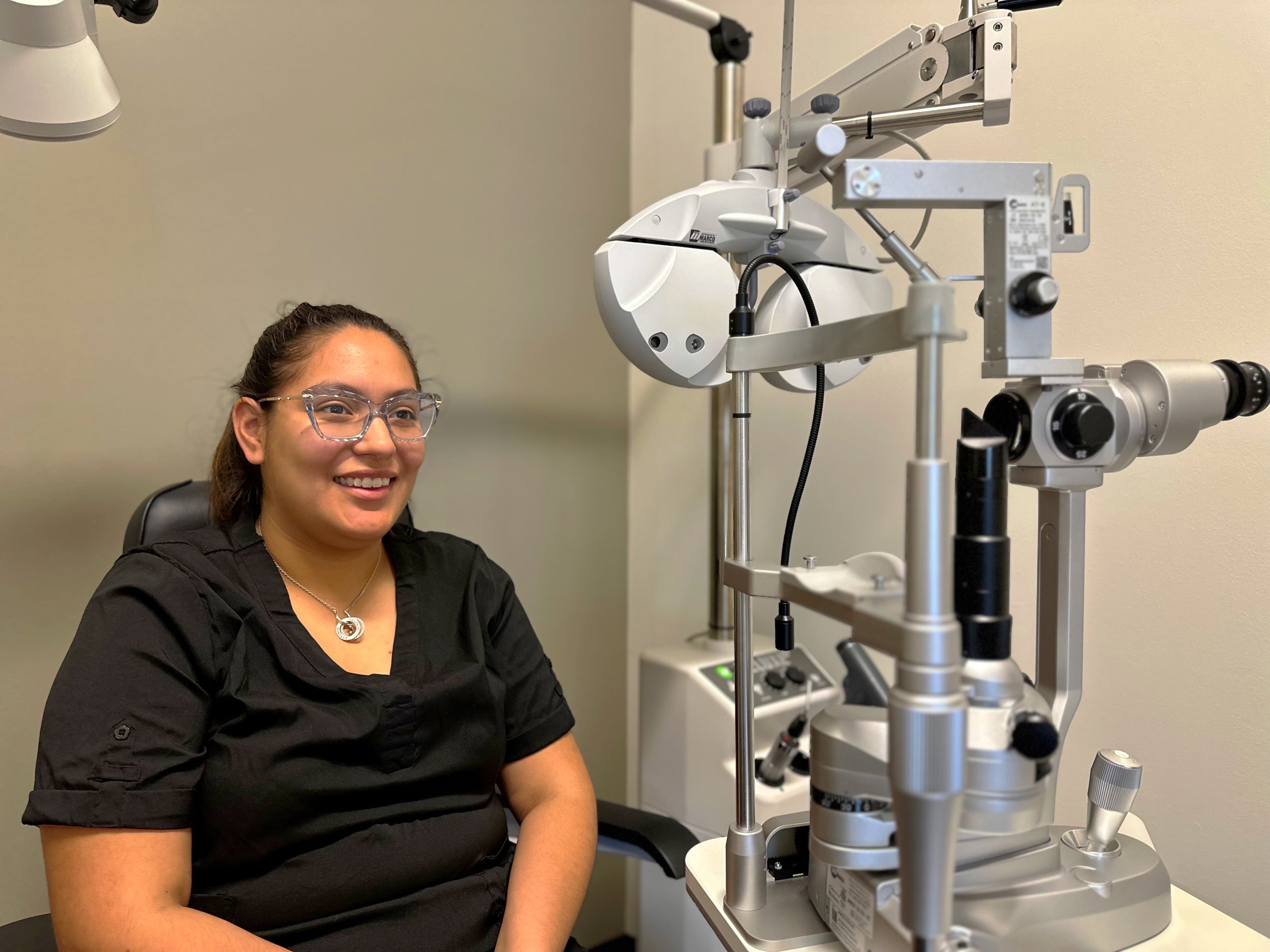Dealing with Ocular Allergies
Dealing with Ocular Allergies
Ocular allergies, also known as allergic conjunctivitis, can cause discomfort and irritation in the eyes. Here are some strategies to help deal with ocular allergies:
1. Identify and Avoid Allergens: Determine the specific allergens triggering your ocular allergies. Common culprits include pollen, dust mites, pet dander, mold, and certain irritants like smoke or perfumes. Take steps to minimize your exposure to these allergens by keeping windows closed, using air purifiers, regularly cleaning your living environment, and avoiding known triggers whenever possible.
2. Practice Good Eye Hygiene: Cleanse your eyes regularly to remove allergens and reduce symptoms. Use a gentle, hypoallergenic eyelid cleanser or a mild saline solution to gently wash your eyelids and lashes. Avoid rubbing your eyes, as it can worsen the irritation.
3. Apply Cold Compresses: Use a cold compress or washcloth soaked in cold water to alleviate itching and reduce swelling. Apply the compress to closed eyes for a few minutes at a time. The cold temperature can help soothe the eyes and provide temporary relief.
4. Use Artificial Tears: Lubricating eye drops or artificial tears can help alleviate dryness and flush out allergens from the eyes. Choose preservative-free drops and use them as directed or as needed to keep your eyes moist and comfortable.
5. Over-the-Counter Allergy Medications: Non-prescription antihistamine eye drops or oral antihistamine medications can provide temporary relief from allergy symptoms. Consult with a pharmacist or healthcare professional to select the most appropriate option for your specific needs. Follow the instructions carefully and discontinue use if any adverse effects occur.
6. Prescription Medications: If over-the-counter remedies are insufficient, consult an eye care professional or allergist. They may prescribe stronger antihistamine or mast cell stabilizer eye drops, corticosteroids, or other medications to manage your ocular allergies effectively. Follow the prescribed dosage and usage instructions.
7. Avoid Contact Lenses: If your eyes are particularly irritated during an allergic flare-up, consider refraining from wearing contact lenses temporarily. Contact lens wear can exacerbate symptoms and increase discomfort. Switch to eyeglasses until your symptoms subside.
8. Seek Professional Advice: If your ocular allergies are persistent, severe, or significantly affecting your quality of life, consult an eye care professional. They can provide a thorough evaluation, determine the best treatment plan for you, and offer specialized interventions if necessary.
Remember, these suggestions aim to alleviate symptoms and manage ocular allergies. For a proper diagnosis and personalized treatment plan, it's always best to consult with a healthcare professional or an eye care specialist.

